 Can love be accelerated?
Can love be accelerated?
Possibly! Arthur Aron, a famed psychologist, composed three sets of 12 questions designed to provoke intimate feelings between potential partners. The intent of the study is to create intimacy through mutual vulnerability: A key aspect of lasting relationships is reciprocity and being able to connect with each other on a deep level.
The sets of questions go deeper as you go through them, and the questions cover a wide range of topics. Want to give it a shot? We have the questions here:
Set I
1. Given the choice of anyone in the world, whom would you want as a dinner guest?
2. Would you like to be famous? In what way?
3. Before making a telephone call, do you ever rehearse what you are going to say? Why?
4. What would constitute a “perfect” day for you?
5. When did you last sing to yourself? To someone else?
6. If you were able to live to the age of 90 and retain either the mind or body of a 30-year-old for the last 60 years of your life, which would you want?
7. Do you have a secret hunch about how you will die?8. Name three things you and your partner appear to have in common.
9. For what in your life do you feel most grateful?
10. If you could change anything about the way you were raised, what would it be?
11. Take four minutes and tell your partner your life story in as much detail as possible.
12. If you could wake up tomorrow having gained any one quality or ability, what would it be?
Set II
13. If a crystal ball could tell you the truth about yourself, your life, the future or anything else, what would you want to know?
14. Is there something that you’ve dreamed of doing for a long time? Why haven’t you done it?
15. What is the greatest accomplishment of your life?
16. What do you value most in a friendship?
17. What is your most treasured memory?
18. What is your most terrible memory?
19. If you knew that in one year you would die suddenly, would you change anything about the way you are now living? Why?
20. What does friendship mean to you?
21. What roles do love and affection play in your life?
22. Alternate sharing something you consider a positive characteristic of your partner. Share a total of five items.
23. How close and warm is your family? Do you feel your childhood was happier than most other people’s?
24. How do you feel about your relationship with your mother?
Set III
25. Make three true “we” statements each. For instance, “We are both in this room feeling … “
Continue reading the main story Continue reading the main story
Continue reading the main story
26. Complete this sentence: “I wish I had someone with whom I could share … “
27. If you were going to become a close friend with your partner, please share what would be important for him or her to know.
28. Tell your partner what you like about them; be very honest this time, saying things that you might not say to someone you’ve just met.
29. Share with your partner an embarrassing moment in your life.
30. When did you last cry in front of another person? By yourself?
31. Tell your partner something that you like about them already.
32. What, if anything, is too serious to be joked about?
33. If you were to die this evening with no opportunity to communicate with anyone, what would you most regret not having told someone? Why haven’t you told them yet?
34. Your house, containing everything you own, catches fire. After saving your loved ones and pets, you have time to safely make a final dash to save any one item. What would it be? Why?
35. Of all the people in your family, whose death would you find most disturbing? Why?
36. Share a personal problem and ask your partner’s advice on how he or she might handle it. Also, ask your partner to reflect back to you how you seem to be feeling about the problem you have chosen.
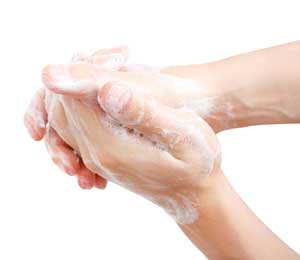 Many people believe that anti-bacterial soaps protect us. This may be in part because consumers are inundated with information from organizations like the Personal Care Products Council, that urges us to believe “that banning anti-bacterial products would increase the level of risk and exposure of the general population to bacteria, leading to increased infection and disease, including 7.5 million cases of food-borne illness and $38 billion in health-care costs annually.” In addition, anti-bacterial soap manufacturers attempt to convince consumers that their anti-bacterial products are “safe and more effective than regular soap.” However, there have been no definitive studies to prove that anti-bacterial products are more beneficial than plain soap and water.
Many people believe that anti-bacterial soaps protect us. This may be in part because consumers are inundated with information from organizations like the Personal Care Products Council, that urges us to believe “that banning anti-bacterial products would increase the level of risk and exposure of the general population to bacteria, leading to increased infection and disease, including 7.5 million cases of food-borne illness and $38 billion in health-care costs annually.” In addition, anti-bacterial soap manufacturers attempt to convince consumers that their anti-bacterial products are “safe and more effective than regular soap.” However, there have been no definitive studies to prove that anti-bacterial products are more beneficial than plain soap and water.





























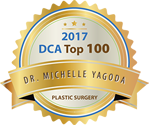
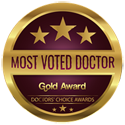
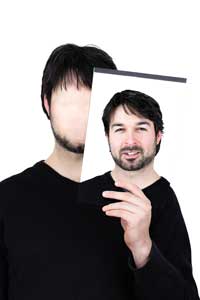 Social media’s presence in our everyday lives has done nothing but grow. Whether one prefers Instagram, FaceBook, Twitter, blogs, or vlogs, it is almost guaranteed that each and every person who has access to a smartphone or computer checks in with their online “friends” dozens of times a day. At first thought it would seem that this is good for our mental health — we are more connected, right? — but in actuality it can be very detrimental.
Social media’s presence in our everyday lives has done nothing but grow. Whether one prefers Instagram, FaceBook, Twitter, blogs, or vlogs, it is almost guaranteed that each and every person who has access to a smartphone or computer checks in with their online “friends” dozens of times a day. At first thought it would seem that this is good for our mental health — we are more connected, right? — but in actuality it can be very detrimental. Everywhere you turn, you hear a new “truth.” Whether you are searching for answers about beauty, diet, or nutrition doesn’t matter — regardless, it is almost impossible to navigate the vast number of health “experts” and their personal opinions. Why is this? Perhaps it is because the definition of “truth” has morphed from that of hard, scientific fact to personal viewpoint: What was once only fact by science is now, in fact, truth by personal science.
Everywhere you turn, you hear a new “truth.” Whether you are searching for answers about beauty, diet, or nutrition doesn’t matter — regardless, it is almost impossible to navigate the vast number of health “experts” and their personal opinions. Why is this? Perhaps it is because the definition of “truth” has morphed from that of hard, scientific fact to personal viewpoint: What was once only fact by science is now, in fact, truth by personal science. Can love be accelerated?
Can love be accelerated?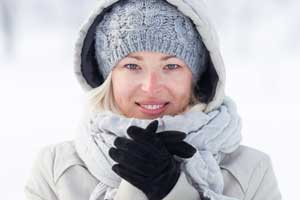 Your mom’s advice was right: Put on a sweater. New research indicates that, yes, being warm helps protect against getting a cold. The body does not utilize its immune system as well at lower temperatures according to early studies. This research, being done at Yale on mice, indicates that low temperatures suppress cells’ ability to detect oncoming viruses as well as their ability to warn the immune system. This gives viruses more freedom to replicate — making you sicker!
Your mom’s advice was right: Put on a sweater. New research indicates that, yes, being warm helps protect against getting a cold. The body does not utilize its immune system as well at lower temperatures according to early studies. This research, being done at Yale on mice, indicates that low temperatures suppress cells’ ability to detect oncoming viruses as well as their ability to warn the immune system. This gives viruses more freedom to replicate — making you sicker! A Diet to Live Longer?
A Diet to Live Longer?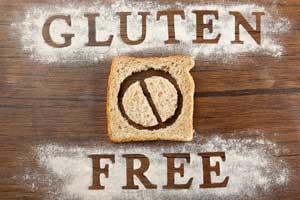 It is no secret that the gluten-free food industry has seen tremendous growth over the past year. Expected to reach $15 billion in sales by 2016, the gluten-free trend is not only found in supermarkets, but restaurant chefs are catering to those who are gluten-free or gluten-sensitive with special dishes as well.
It is no secret that the gluten-free food industry has seen tremendous growth over the past year. Expected to reach $15 billion in sales by 2016, the gluten-free trend is not only found in supermarkets, but restaurant chefs are catering to those who are gluten-free or gluten-sensitive with special dishes as well.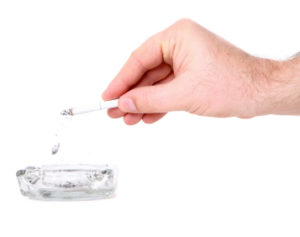 Smoking
Smoking Is the doctor really always right? Is it okay to question the expert? If you have worried that something was wrong even though the doc reassured you that it wasn’t, you are not alone.
Is the doctor really always right? Is it okay to question the expert? If you have worried that something was wrong even though the doc reassured you that it wasn’t, you are not alone. 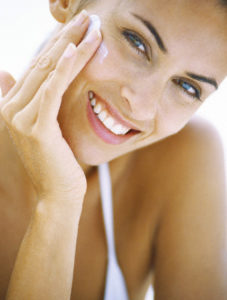 When you hear that phrase you probably think of the holidays, right? Well, accompanying the happy holiday season is winter and, unfortunately, dry skin! Not only does the cold cause skin lines and wrinkles to become more pronounced, but the “winter itch” plagues many. Fortunately,
When you hear that phrase you probably think of the holidays, right? Well, accompanying the happy holiday season is winter and, unfortunately, dry skin! Not only does the cold cause skin lines and wrinkles to become more pronounced, but the “winter itch” plagues many. Fortunately,